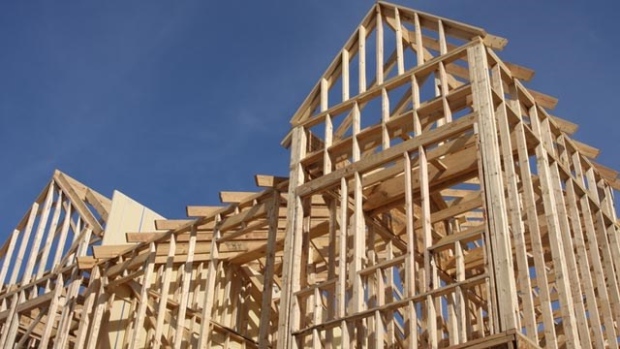Mike Cagney’s Figure Technology Taps Tannenbaum as Its New CEO
Figure Technology Solutions Inc. tapped Michael Tannenbaum as its new chief executive officer, ahead of the financial-services firm’s potential initial public offering.
Latest Videos
The information you requested is not available at this time, please check back again soon.
Figure Technology Solutions Inc. tapped Michael Tannenbaum as its new chief executive officer, ahead of the financial-services firm’s potential initial public offering.

Sales of new homes in the US bounced back broadly in March as an abundance of inventory helped drive prices lower.

Hong Kong developer Lai Sun Development Co. is considering options for a planned office tower in the City of London, including a potential sale of a stake in the project.

Germany’s financial regulator BaFin is taking a closer look at the real estate used by lenders to secure covered bonds known as Pfandbriefe, a €400 billion market traditionally considered among the safest in credit.

Taylor Wimpey Plc is failing to see lower mortgage rates translate into higher levels of home sales and is maintaining its forecast for fewer deals in 2024.
Apr 10, 2017
The Canadian Press

OTTAWA -- The number of new homes that began construction in Canada last month hit their highest level since September 2007, the latest sign of a boom in the housing market that many fear is overheating.
The seasonally adjusted annual rate of housing starts for March came in at 253,720 units, up from 214,253 in February, Canada Mortgage and Housing Corp. said Monday.
Economists had expected a reading of 215,000 for last month, according to Thomson Reuters.
In Toronto, where concerns of a housing bubble are most pronounced, the annual pace of housing starts was 53,021, up from 36,389 the month before.
"The supply response in Toronto is particularly welcome, given the white-hot pace of price growth and dearth of inventory on the market," said TD Bank senior economist Michael Dolega in a research note.
"The completion of these units should help take some steam out of Toronto's home price growth, although this won't happen overnight and is likely a story for next year and beyond."
The gain in national housing starts helped push CMHC's trend measure, a six-month moving average of the monthly seasonally adjusted annual rate, to 211,342 units in March, up from 205,521 in February.
The annual pace of urban starts increased by 20.2 per cent to 235,674 units, boosted by an increase in multi-unit starts.
Multi-unit urban starts increased by 30.2 per cent to 160,989, while single-detached urban starts increased by 3.1 per cent to 74,685 units. Rural starts were estimated at a seasonally adjusted annual rate of 18,046.
A lack of supply has been one factor some have pointed to as a reason for the recent surge in Toronto home prices.
Politicians have faced calls in recent months to address soaring home prices in the city amid worries the market is in a bubble. The average selling price in the Greater Toronto Area in March was up by roughly a third compared with a year ago.
Ontario Finance Minister Charles Sousa has promised housing affordability measures in the upcoming budget, raising the possibility of a tax on foreign investors, speculators or vacant homes.
Both a vacant homes tax and a foreign buyer tax have been implemented in Vancouver, where sales volume has cooled.
The better-than-expected housing starts figures follow strong jobs results for March and adds to the case that the economy is gaining momentum.
"With an early-year flurry of new activity, it looks like residential construction could add more support to Canadian growth than many are thinking for 2017," wrote Robert Kavcic, senior economist at BMO Capital Markets, in a research note.
The Bank of Canada's spring monetary policy report and rate announcement is scheduled for Wednesday. Governor Stephen Poloz has stressed the importance of remaining cautious, though economists expect the central bank to upgrade its forecast for growth.